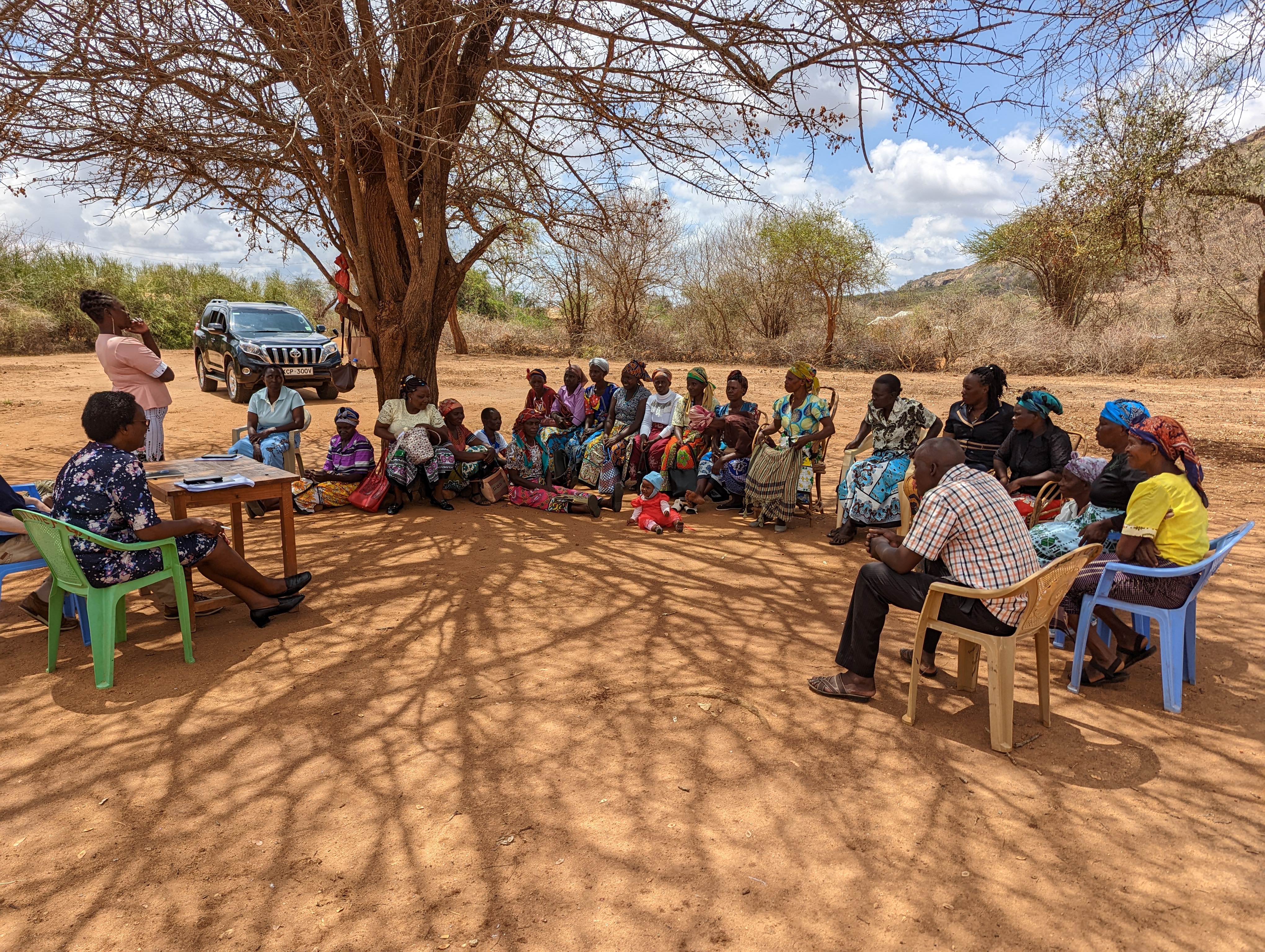IFAD builds on its comparative advantage - IOE
Rome, 26 May 2023 – Engagement in targeting poor rural people is IFAD’s most notable comparative advantage, which distinguishes the Fund from other international financial institutions. Governments and other development partners echo this value and request IFAD to work in poor, remote and fragile locations. The evaluation synthesis note on ‘Targeting in IFAD-supported projects’, recently published by the Independent Office of Evaluation of IFAD (IOE), presents this comparative advantage and discusses how IFAD may further build on it in the near future.
The new IOE publication is the first evaluation synthesis note prepared by the Office. The note consolidates evidence from IOE evaluations on IFAD’s achievements and challenges in targeting poor rural people, and offered timely inputs to the updating of IFAD’s 2008 Policy on Targeting. The Policy provided a definition of targeting and identifies the targeting principles and IFAD target group. The principles and target group were first updated in the 2019 Revised Guidelines on Targeting, which defined the target group as rural people who were poor and vulnerable and had the potential to take advantage of improved access to assets and opportunities for agricultural production and rural income-generating activities. At its 138th session, the IFAD Executive Board approved the Poverty Targeting Policy 2023.
In recent years, IFAD has piloted and increasingly adopted targeting innovations in and alongside its loan programmes. Notable examples include household-focused interventions, such as the Gender Action Learning System, household mentoring and personal financial mentoring. Building on these and other innovative ideas, IFAD seeks to further capitalize on its successes and comparative advantage. Promising ideas to advance targeting include combining social protection with agriculture, revisiting community-based targeting, moving from linear value chains to the use of a wider systems approach that increases opportunities for targeting and inclusion, phone-based targeting and a participatory geographical information system.
While the updated principles of targeting described in the 2019 Revised Guidelines on Targeting are in line with Agenda 2030 and its imperative to ‘leave no one behind’, IFAD has not capitalized on the demands of the 2030 Agenda to reflect critically with governments on how to improve targeting further. The IOE Synthesis Note finds that guidance on how to target those left behind through core project interventions has been insufficient. There is also a notable gap between targeting theory and actual practice, as IFAD’s claim to undertake ‘people-centred development’ is not fully internalized. The quality of poverty and livelihoods analyses is weak and has worsened over time. Additionally, IFAD-advocated participatory approaches are rarely used to refine interventions to better meet people’s needs.
Another issue of concern is that although most projects adhere to targeting guidelines by using national socio-economic databases – in a bid to enhance ownership, coherence and relevance for governments –, there is no evidence to show that project designs use a critical eye to review the rigour or validity of government instruments.
While design is important, implementation is even more critical and it relies on governments and other national stakeholders. IFAD therefore needs to support them in understanding the targeting priority and by providing tools and capacity-building, but this is not done to a sufficient extent.
Against this backdrop, the Synthesis Note presents multiple learning opportunities. By re-emphasizing that targeting rural poor people is at the heart of all IFAD support to governments, and using the imperative of leaving no one behind as leverage, the Fund can position itself as the financing institution best placed to achieve better targeting. Furthermore, a renewed focus on participatory development can help re-set mindsets about the centrality of targeting rural poor people and endorse IFAD’s position as a leader in empowering poor people and leaving no one behind.
Following approval of the the Poverty Targeting Policy 2023 by the IFAD Executive Board, in May 2023, the Fund now has the opportunity to address the issues highlighted in the IOE Synthesis Note.
For further information, please contact Alexander Voccia [here]
RESOURCES
- To access the evaluation synthesis note on ‘Targeting in IFAD-supported projects’, please click here.
- To access the IFAD Targeting Policy 2023, please click here.
- To access the 2019 IFAD Revised Operational Guidelines on Targeting, please click here.
CONTACTS

